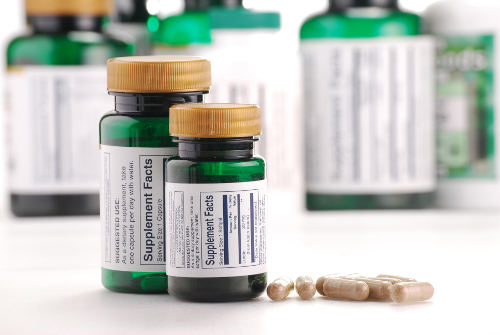 How could I not talk about this week’s presidential debate? I know I’m no political pundit and you don’t subscribe to this e-newsletter to read about politics, but man, was that something. And, more importantly, it does demonstrate an important health lesson that I’m going to share with you today.
How could I not talk about this week’s presidential debate? I know I’m no political pundit and you don’t subscribe to this e-newsletter to read about politics, but man, was that something. And, more importantly, it does demonstrate an important health lesson that I’m going to share with you today.
Listening to Donald Trump on Monday reminded me so much of the supplement and health marketing industries. For an hour and a half, it seemed like he was speaking loudly while actually saying nothing, showcasing what I heard one analyst call “a casual relationship with the truth.”
Don’t Believe Everything You Hear
This is like so many ads I’ve seen recently that talk about supplements, “superfoods,” “cleanses,” and other available health-themed products and practices. If only there were a team of fact-checkers to go through these ads for you like there is for presidential debates.
Now, no politician—and no health company—is going to give you the straight goods. They’re all trying to sell you something. For example, most news agencies claimed Hillary Clinton swayed from the truth about four times over the course of the debate. Trump, on the other hand, was reported to have uttered 34 lies, which is interesting because he only made a handful of points throughout the debate, none of which appeared to be rooted in fact or substantiated in any way.
Supplement and health product marketing does the same thing. Juice cleanses that claim to relieve “toxins” do the same thing.
Lies Told in Supplements and Health Product Marketing
In fact, a juice cleanse is not sustainable, not healthy, and is probably one of the worst nutritional or dietary decisions you can make—but if you read the marketing material and see the celebrity endorsement, you’d never know it. Juice cleanses remove valuable nutrition—like fiber—virtually eliminate satiety (meaning you get hungrier!), are unsustainable, and ultimately are counterproductive. Your body doesn’t have “toxins” to remove and a juice cleanse won’t cure cancer or really do any of the things it’s “supposed” to.
Many of the same arguments can be made for the effects of supplements and so-called superfoods. Most supplements have been found to have no real effect on people without medically recognized deficiencies; what often goes unreported about superfoods is that they alone will not cure or protect you from disease. They only will if they are part of a healthy diet and lifestyle. Simply adding some quinoa, blueberries, or avocado to a diet otherwise filled with processed foods will have limited—if any—effect.
When you’re reading up on health products, be sure to do research. Make sure you check against the claims made in the marketing material so you know the truth. Ignore loud voices that say nothing, and look to the facts so you can make an informed decision.
